Posts tagged Cancer
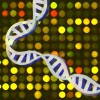
Harnessing the power of bioinformatics in cancer research
Nov 22nd
One of the biggest challenges facing cancer researchers is that the disease varies so much from person to person. Even the same type of cancer – lung, brain, breast, colon, and so on – can be subtly different. This means that a therapy that works well in one patient may have no effect in another.
So researchers in the UK brought in the big guns – bioinformatics.
Cancer Research UK has set up seven British centers to start collecting 9,000 tumor samples from a wide range of cancer patients to create a DNA database. Researchers will extract DNA from these tumors and More >

Brain tumors snack on cholesterol
Sep 19th
Researchers at the University of California Los Angeles and Ohio State University Comprehensive Cancer Center are investigating a new treatment for glioblastoma, the deadliest form of brain cancer. Their paper, out this week in Cancer Discovery, shows how blocking a mechanism involved in cell metabolism and triggered by a cancer gene can reduce brain tumors.
Glioblastoma affects about 18,500 Americans each year, with less than More >
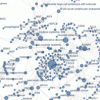
Cancer Genomics: so many mutations!
Feb 18th
The human genome is the complete collection of over three billion bases in each of our cells. Cancers accumulate multiple changes, or mutations, in their DNA that contribute to the disease by changing how cells behave. For instance, cancers need nutrients to grow. Very often, they get these nutrients by producing signals that encourage new blood vessel formation. Finding the mutations that lead to cancer is very difficult. For one thing, even for cancers that affect the same tissue and look similar, the mutations can be very different. Also, one of the hallmarks of cancer is an increased rate of More >
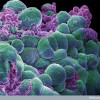
Why no cure for cancer?
Aug 5th
I was looking through some of the comments on the blog and thought I would address a few of them, as I imagine others would have similar questions. One reader wanted to know why some cancers are more fatal than others. For example, the five-year survival rate for prostate cancer is nearly 99%, while it is 4% for pancreatic cancer. There are several reasons for this. First, some cancers are by nature slow growing and unlikely to spread through the body, like prostate cancers, while other cancers are very aggressive and often metastasize. Another issue is diagnosis: there are good More >
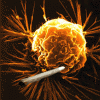
Addicted cancers
Jun 9th
Most people know that smoking is a hard habit to kick because smokers become addicted to the nicotine and habit. Equally sad is the tendency of young adolescents to start smoking for social and psychological reasons.
In a turn-around of sorts, it may be comforting to know that cancers can become addicted, too. Cancer cells have many different genetic changes, as well as changes in the expression of genes that are not due to mutations called epigenetic changes. Although cancer cells do have many differences from normal cells, they are still very similar to normal cells, making it very difficult to More >

Breast Cancer Screening: Age or Density?
Apr 29th
Next to skin cancer, the most prevalent form of cancer in women is breast cancer. According to the American Cancer Society (ACS) the chance of developing breast cancer over a lifetime is less than 1 in 8. The most extensively used breast screening technique is an x-ray exam of the breast or mammogram. The ACS reports that organized mammographic screening reduces breast cancer mortality by more than 60%, and recommends yearly mammograms starting at age 40. Women with a strong family history of breast cancer, or who have other risk factors, are advised to begin routine screening earlier.
However, there’s no shortage More >

Getting an edge on breast cancer
Feb 3rd
Cancer is a life threatening disease characterized by uncontrolled growth of cells coupled with malignant behavior. The causes leading to cancer are believed to be genetic, environmental, or a combination of the two. Chemotherapy is one of a number of treatments for cancer. It utilizes a regiment of chemicals toimpair cell division and/or induce programmed cell death.
Research carried out by Dr Yang Li and colleagues at Harvard Medical School, the Technical University of Denmark, and the Université Libre de Bruxelles, have highlighted two genes – LAPTM4B and YWHAZ – that may inhibit the response of anthracycline-based adjuvant chemotherapy for breast More >

Cell Phones: Where’s my earpiece?
Jan 29th
Cell phone usage has increased dramatically in recent years, with the number of subscribers exceeding 3 billion subscribers worldwide. Numerous case-control studies have examined the possible correlation between long term use of cell phones (specifically, the electromagnetic radiation emitted by cell phones) and the incidence of brain tumors.
In the fall of 2009, the World Health Organization published a 10 year study which examined the cell phone habits of more than 120,000 people in 13 countries. The study reported a significantly higher risk of developing brain tumors in individuals with 10 years or more of cell phone usage. Similar findings in More >

Cancer-free mole rats may hold a key to fighting cancer.
Jan 11th
I was always under the impression that sharks never got cancer. It turns out that isn’t true – they do get cancer, but less often than people. There is an animal that doesn’t get cancer though, and that is the naked mole rat. These cute little creatures live long lives underground, so I’m not sure how anyone figured this out.
Needless to say, an animal that doesn’t get cancer is something worth studying. Why no cancer? It turns out that mole rat cells don’t “like” each other very much. Researchers discovered that when these cells are cultured, they stop dividing at More >
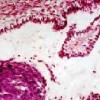
Genetic Codes for Skin and Lung Cancer have been Busted!
Dec 22nd
“Cancer is a leading cause of death worldwide and claims more than 7 million lives each year according to the World Health Organization.”
Cancer cells have mutations in their genes that render them unable to respond to signals that regulate cell division. These cells grow uncontrollably and can invade normal tissue in other locations of the body and cause disrupted functions of major organs. This is why cancer is so deadly.
A mutagen is a physical or chemical substance that can alter genetic material in cells. DNA can be damaged or changed (mutated). Cancer cells have changes in the genes themselves. These changes More >
